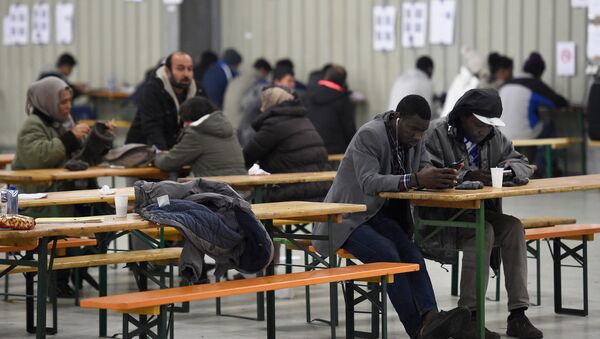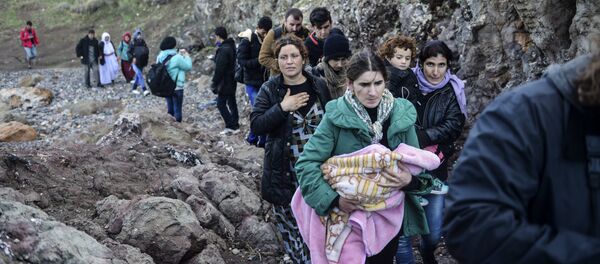The minister said that personal interviews will soon be implemented in the review process. He explained that stricter measures would help ascertain applicants' identities and are essential from a security standpoint. Until now those seeking refugee status were only required to provide information in written form.
"I have deemed it necessary to reintroduce individual assessments for all refugees and asylum seekers — regardless of which country they come from," the minister said, citing several cases in which refugees had used false Syrian passports.
Federal migration commissioner Aydan Ozoguz added that while carrying out identity checks officials will "need to look more closely at asylum applicants from Syria, Eritrea and Iraq."
Germany's state interior ministers also agreed during a meeting in Koblenz that they would permit "repatriations to safe areas of Afghanistan."
Some met the shift in the policy toward asylum seekers with criticism. The head of non-governmental organization Pro Asyl, Guenter Burkhardt, said that sending people back to Afghanistan is irresponsible for there are no regions in the country that can be considered permanently secure.
The organization also expressed fears that the move to resume individual assessments would slow down the process of receiving refugee status and trap asylum seekers in waiting loops which could last for months.
In efforts to cope with a record surge in asylum seekers, Berlin and Kabul are also planning to intensify cooperative measures for fighting human trafficking and implement information campaigns to prevent people from going on the arduous journey to Europe, De Maiziere said.
According to sources in Germany's coalition government, more than 950,000 refugees have been registered this year in Germany.



